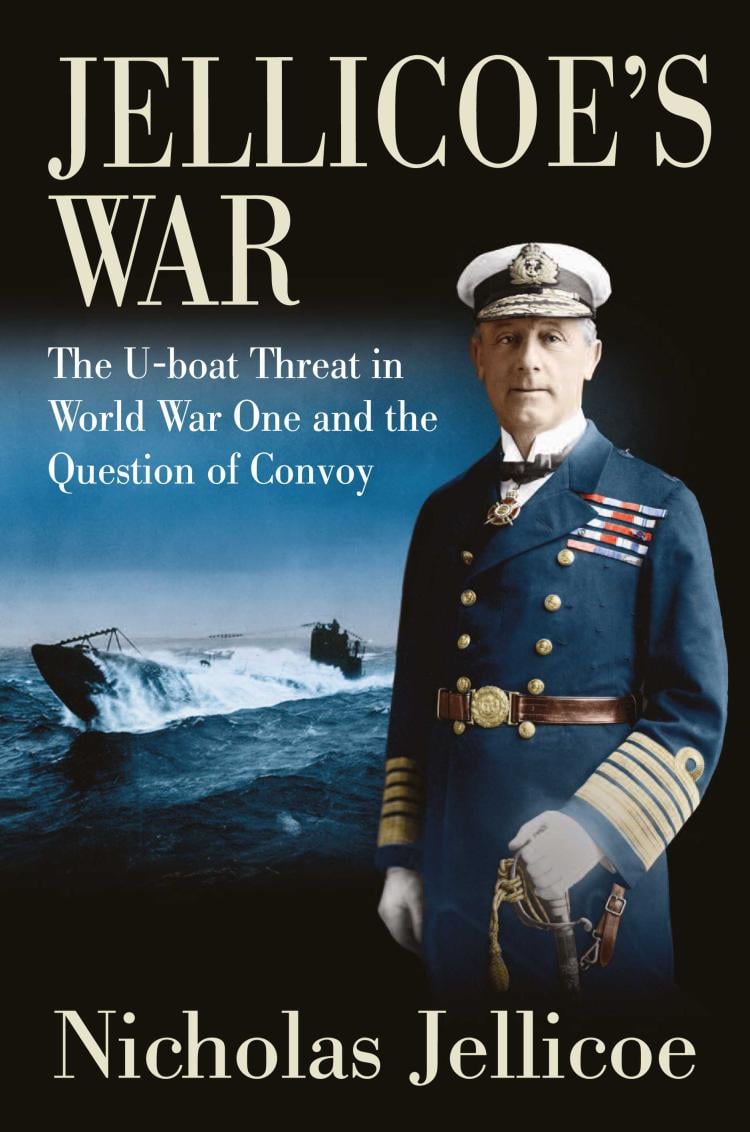Jellicoe's War
The U-boat Threat in World War One and the Question of Convoy
- Subject: Fall 2024 Catalog | World War I | Royal Navy
- Format:
Hardcover
- Pages:
448pages
- Illustrations:
32 B/W Photos
- Published:
October 15, 2024
- ISBN-10:
103610902X
- ISBN-13:
9781036109028
- Product Dimensions:
9.22 × 6.14 × 1 in
- Product Weight:
24 oz
Overview
In February 1917, German U-boats launched a savage unrestricted campaign against both Allied and neutral shipping. At its peak in April, 860,000 tons of Allied merchant shipping was sunk. Britain’s supremacy at sea was being severely challenged and with it the chances of victory in the wider war. Taking up the challenge was Britain’s new First Sea Lord, Sir John Jellicoe, until the previous December C-in-C of the Britain's Grand Fleet – famously described by Churchill as the only man who could have lost the war in an afternoon. The battle he now faced was equally critical, although the timeline of defeat was a matter of months rather than hours. Britain’s food stocks were dangerously low with wheat reserves down to six weeks and sugar to only two, while wide-scale shortages were crippling its industrial economy.
Clearly, a radical new approach to anti-submarine warfare was called for, and Convoy became the leading contender. There were many objections to protecting shipping in this way, some ideological but most practical – a workable system, for example, effectively required state control of both shipping and distribution networks, something inconceivable in normal circumstances. However, Convoy had powerful advocates, including the Prime Minister, Lloyd George, who later claimed he had personally forced its adoption on a reluctant Admiralty. This self-serving political myth cast Jellicoe as an opponent of Convoy. Nothing could have been further from the truth. As both Jellicoe and Rear Admiral William Sims (USN) understood, the key requirement was a rapid increase in the number of destroyers for escort duties. America provided them, the first arriving in Queenstown, Ireland on 4 May and by June 46 were operating in European waters. This was the first step in an Anglo-American campaign that gradually brought the U-boat threat under control and led to its ultimate defeat.
Jellicoe's War: The U-boat Threat in World War One and the Question of Convoy is a fresh look at the undersea war as a whole and the complex factors bearing on the campaign, only one of which was Convoy. The result is a work of original analysis and thought provoking conclusions, abundantly illustrated with relevant maps, diagrams and photographs. A final seal of approval is the book’s foreword written by former submariner, Admiral James “Jamie” Foggo, USN (Ret).
Clearly, a radical new approach to anti-submarine warfare was called for, and Convoy became the leading contender. There were many objections to protecting shipping in this way, some ideological but most practical – a workable system, for example, effectively required state control of both shipping and distribution networks, something inconceivable in normal circumstances. However, Convoy had powerful advocates, including the Prime Minister, Lloyd George, who later claimed he had personally forced its adoption on a reluctant Admiralty. This self-serving political myth cast Jellicoe as an opponent of Convoy. Nothing could have been further from the truth. As both Jellicoe and Rear Admiral William Sims (USN) understood, the key requirement was a rapid increase in the number of destroyers for escort duties. America provided them, the first arriving in Queenstown, Ireland on 4 May and by June 46 were operating in European waters. This was the first step in an Anglo-American campaign that gradually brought the U-boat threat under control and led to its ultimate defeat.
Jellicoe's War: The U-boat Threat in World War One and the Question of Convoy is a fresh look at the undersea war as a whole and the complex factors bearing on the campaign, only one of which was Convoy. The result is a work of original analysis and thought provoking conclusions, abundantly illustrated with relevant maps, diagrams and photographs. A final seal of approval is the book’s foreword written by former submariner, Admiral James “Jamie” Foggo, USN (Ret).



